Building an inclusive culture that champions female talent
To mark International Women's Day, we invited inspirational women from different corners of hospitality to a virtual roundtable to discuss how we can #BreaktheBias and build a gender equal industry.
Here, our guests share their experiences as well as insights on what they think businesses can do to create a more inclusive culture where difference is valued and celebrated.
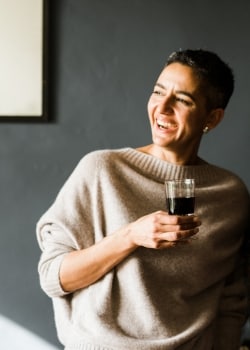
Geetie Singh MBE, Owner Founder, The Bull & Albatross
Founder of the world’s first certified organic pub, The Duke of Cambridge, Geetie received an MBE for Services to the Organic Pub Trade in 2009. A campaigner and environmentalist, Geetie’s latest project, The Bull Inn, has turned a historic Totnes pub into a community hub, winning exceptional food reviews to match its ethical credentials.
“When I started out in the 90s it was a harsh and brutal world, but in a way that’s what appealed to me! It was exciting and interesting and I knew it could be done better.
“When I opened my own place I set clear guidelines about behaviour. We ended up with a very functional, emotionally literate team that was supportive and not abusive, but that has to be built into the structure. Culture is fundamental, and that is led by directors and managers. If a kitchen is functioning in an aggressive way that goes all the way to the top.
“This is where businesses have this wonderful power to change society. A business with a strong positive culture can teach chefs to operate very differently. If we all ran our businesses with that hat on, society would change overnight.”
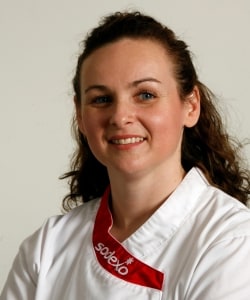
Julianne Forrestal, Culinary Director, Sodexo Ireland
A passionate advocate of local and sustainably sourced Irish produce, Julianne has more than 20 years culinary experience, working in hotels and fine dining. Today, as Culinary Director, at Sodexo Ireland, teaching and mentoring is central to her role.
“I’ve been the only female in a lot of kitchens I’ve worked in, especially in the early days of my career. I know not everyone’s been as lucky as me but as my career has evolved I've leveraged very good support from men I've worked with. Many have been amazing in terms of development and promotion.
“I think creating a strong and positive culture is a leadership piece, be it male or female, to support the team working with you. In the kitchen you’re developing minds, as well as developing your own ability to challenge. So, the leader has to have those traits of encouragement and empowerment.”
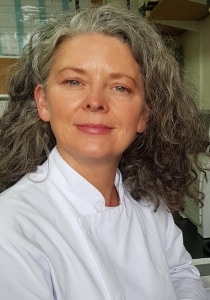
Mary Farrell, Executive Head Chef, Morton’s Food Store
Over her 30-year career Mary has juggled senior chef roles and businesses with self-funded study, including a PhD on gender inequalities in Ireland’s chef industry. Now in senior management she focuses on improving working conditions and making her kitchens sustainable.
“Rooting out issues can take a lot of determination. When I started, we had a problem with younger guys not accepting instruction from a woman. In one kitchen there was a calendar with fairly graphic images of women. I asked for it to be taken down as it was offensive, and the next day it was back up. It wasn’t taken seriously and in the end I had to rip it up and throw it in the bin. I wasn’t spoken to for three days, but we got over it. Once people see you’re serious about these issues and you’re not going to back down they come around.
“You have to go in with a fairly strong attitude if there are things that need sorting out. Once you do that then other staff feel more comfortable coming to you if they have problems. They see you’re responsible and you’ll take them seriously.”
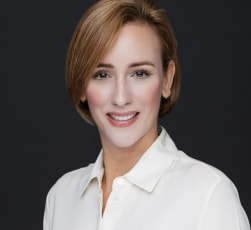
Jaclyn Evans, Director of Business Development, Entegra
Working in restaurants and 5* hotels in London, Abu Dhabi and Dubai for the last 14 years Jaclyn says one of her proudest moments was taking six restaurant brands from building site to launch for a new hotel opening in the Middle East.
“A lot of big organisations are doing fast track promotions for women, but actually I don’t believe in that. We don’t want to be promoted because we’re female, we want to be promoted in the same room as men, on our merits.
“Leaders need to realise that they set the example. What you permit you promote. Check yourself, check your team, check your culture. Don’t do diversity work and put it in a drawer, make it a living breathing part of how you work within your team.”
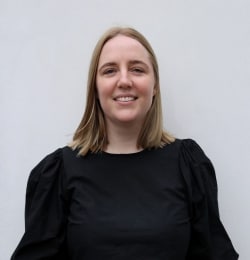
Tobie-Anna Durk, Founder, Kelly’s Cause
Trained at Le Cordon Bleu, Tobie-Anna became head chef of Brixton’s acclaimed Kricket restaurant in 2018. After the suicide of her close friend and fellow chef, she trained as a Mental Health First Aid England Instructor and created Kelly’s Cause Foundation in her memory. It is now the UK’s leading Mental Health First Aid trainer for the hospitality industry.
“In the early months of my career I felt I had to take on a kind of masculine energy, to prove I could keep up, and it made me so unhappy. Then it flipped and I started being more myself. This led to really good relationships with most of the male chefs I worked with, we’d talk about things like how we were feeling that might not have happened in an all-male kitchen.
“I think there’s pressure to take on that macho culture because that’s what we see of the industry before we go into it. We need to elevate the voices of women. If you’re not in hospitality it’s probably hard to name three female professional chefs. It's about changing the people we have speaking for the industry.”
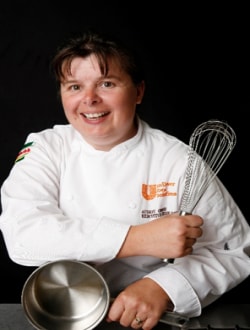
Audrey Crone, Executive Chef, Unilever Food Solutions Ireland
Audrey has been a chef for over 30 years and loves that her current role allows her to combine her passion for food and sustainability as well as working with so many others. Audrey has always believed in training, motivating and inspiring chefs; something which comes to life in her day-to- day role. She says that her biggest personal achievement was probably to Captain the Irish National Culinary team in the Culinary Olympics, although she’s most proud of the effect she’s had on others “seeing talent and giving people opportunities to succeed.”
“Education has a huge part to play in creating an inclusive culture, and it starts with recognising bias and especially unconscious bias. Making this part of a training program can be eye-opening as many don’t even realise there is a bias. From there, we can recognise people’s individual abilities and needs.
“I’ve experienced, in the past, a male colleague that was reluctant to take directions from me as it wasn’t how it was in his culture. Taking time to understand the reasons why and talking it through together meant we were able to develop a better working relationship that carried through into real life.
“As Chefs, we become each other’s family and there’s a real chance to change how you see the world and how you behave when we take experiences from each other.”
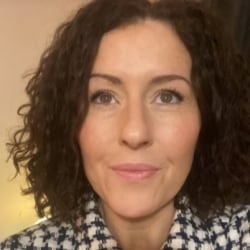
Phillipa Hughes, Managing Director, The Bull & Albatross
After helping in her parent’s coffee shop, Phillipa went on to run international music tours, restaurants, bars and clubs and won several awards on the way. She says “without a doubt The Bull Inn is my proudest achievement. COVID, BREXIT, combined with sticking to our ethical guns has been a mission, but what we’ve built is seriously special.”
“I think a culture that welcomes women into the industry starts with a genuine connection. Not a contrived relationship with manager and team member. Even though I'm senior, they are my peers and my colleagues. It’s about being genuinely understanding, so when people come with issues you put yourself in their shoes. And also be excited for them when they start. Show someone all the cool stuff they can do, help them find the bit of catering they love the most and run with it.”
“Creating a gender equal workplace has to be about stopping toxic masculinity in its tracks, I won’t stand for it, and I won’t allow my team to stand for it.”
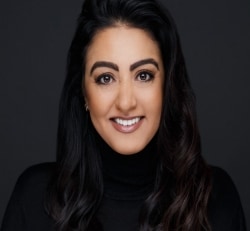
Millie Manzur, Business Development Manager, Entegra
Starting out as a receptionist before moving into management Millie went on to operate one of the busiest restaurants in London. One of her proudest moments was developing a training academy and being nominated as the training site for all new managers for the group.
“I think it’s really important to get more women in senior leadership positions so that young women coming into the industry have something to aspire to. I was fortunate because I progressed quite quickly. There was a lot of focus on support and each person was given the tools they needed to succeed.
“I think a diverse workforce matters so much for creativity and innovation. When you have people from different backgrounds they think differently and you can be more creative. Whether it’s gender, race, culture, everyone brings valuable things to the table.”
